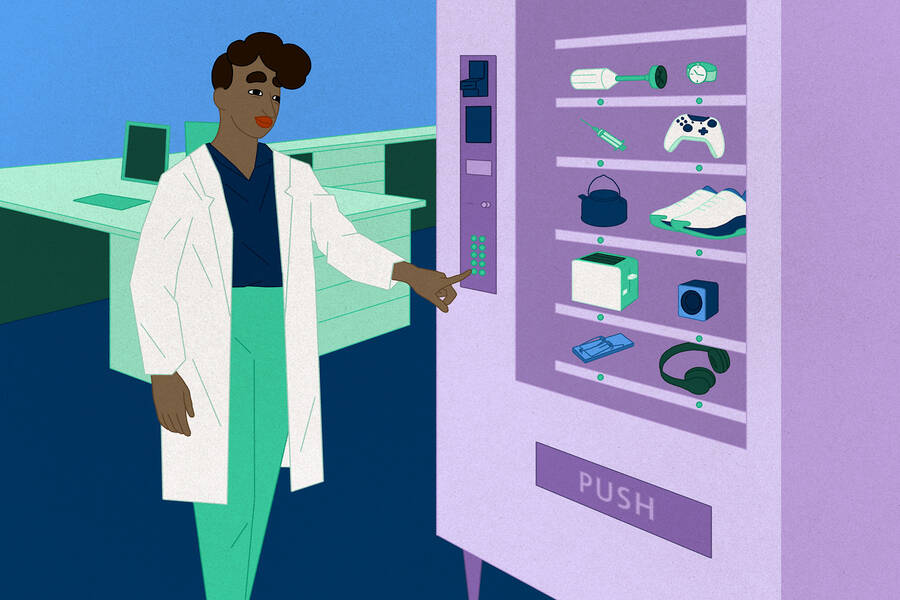“If you ask any professor or researcher, they will basically tell you that tenure is one of the most important moments, if not the most important moment, of their academic career,” says Giorgio Tripodi, a postdoctoral research fellow at the Kellogg School.
When tenure was first introduced, the reasoning behind it was twofold: first, to ensure academic freedom, and second, to provide scholars with enough economic security to take on riskier projects, exploring novel terrain in pursuit of new breakthroughs. But over the years, questions have emerged about whether tenure remains the most effective type of contract for educational and research institutions to achieve these goals. After all, with the safety net of tenure behind them, professors and scientists might not feel as motivated to continue working as hard or as efficiently as before.
Tripodi collaborated with a team of researchers—including Dashun Wang, a Kellogg professor of management and organizations and the Kellogg Chair of Technology, and Benjamin Jones, a Kellogg professor of strategy—to investigate the impact of tenure on the research efforts of academic faculty.
They focused on the research publications of thousands of professors from hundreds of PhD-granting institutions across the U.S. And they drew from several large-scale data sets with information on a wide range of metrics, from professors’ tenure status to their article publication rates and citations.
The team’s analysis of the data uncovered clear differences between a professor’s research output before tenure and after tenure.
“On average, we find that there is a rapid increase in publication rates up to the year before tenure, followed by a sharp break, or a plateau, around the time people receive tenure,” Tripodi says. “Basically, as you start, you grow and produce more, and then [after tenure] there is often a stabilization.”
What’s more, this change in publication rates around the time of tenure reflects a deeper shift in researchers’ career trajectories, adds Wang, who also directs the school’s Center for Science of Science and Innovation (CSSI) and the Northwestern Innovation Institute, and codirects the Ryan Institute on Complexity.
“Scholars also tend to produce their most novel ideas after tenure,” Wang says. “Tenure, it seems, is more than a professional milestone—it appears to mark an inflection point that influences how scientists contribute to scientific advancement more broadly.”
The tenure peak
For their study, Tripodi, Wang, and Jones—along with Yifan Qian of Northwestern University, Dakota Murray of Northeastern University, and Xiang Zheng and Chaoqun Ni of the University of Wisconsin-Madison—focused on 12,611 U.S. faculty members across 15 disciplines who were granted “tenure” between 2012 and 2015.
They classified tenure as the moment a professor was promoted from assistant professor to associate professor, acknowledging that not all institutions grant tenure based on this transition in title. And they tracked professors’ research output for at least five years before and after the change.
The team also assembled a comprehensive data set of faculty and research output from seven different sources, including the Academic Analytics Research Center, which holds information on hundreds of thousands of professors from 362 PhD-granting U.S. institutions.
After analyzing the data, they found that professors’ publication rates consistently rose before tenure, peaking just before they received it, and then generally plateauing after tenure. This pre- versus post-tenure pattern occurred regardless of the number of years it took a professor to obtain tenure.
Though this pattern held true overall, a closer look at individual disciplines showed that there were stark differences in their post-tenure publication rates. Non-lab-based fields like math and business typically saw a sharp and sudden decrease in publication rates after tenure. In contrast, the publication rates for lab-based fields like biology and medicine mostly stayed steady after tenure.
“There are some disciplines that maintain a stable trajectory in terms of publication rate, and there are other disciplines that actually experience a decline after tenure,” Tripodi says. “This is telling us that tenure, which is universal for professors, interacts with the disciplinary norms and the organizational structure of the scientific workforce.”
Research trade-offs
Tripodi, Wang, Jones, and colleagues identified a similar trend when they assessed research impact.
They found that the number of “hit” research articles a professor published—specifically, those in the top five percent of most-cited articles in the same publication year and subfield—were generally higher before tenure than after tenure. They also found that professors typically published their single most-cited research article before they received tenure, after controlling for age.
“Citations are a proxy for the quality of work that researchers do,” Tripodi says. “Of course, it’s an imperfect proxy, but it’s a standard way to try to understand how important a piece of research is. And overall, we noticed there was a decrease in the number of most-highly cited papers after tenure.”
Yet there’s a silver lining: the dip in research impact after tenure coincided with an increase in what the team refers to as novelty.
Within the first five years after tenure, about two-thirds of professors began to research at least one topic that was new for them, and about a third of professors stopped researching one of the topics they previously studied. In addition, after tenure, professors were much more likely to be involved in research that was new to science as a whole. Indeed, professors almost always published their single most novel or innovative research article after they received tenure.
“Contrary to research impact, we see that the most-novel paper tended to appear after tenure,” Tripodi says. “This is, to some extent, in accordance with the idea that tenure gives you more job security and thus more freedom to explore, and so you embark on potentially more-risky, more-novel projects.”
“Overall, the U.S. tenure system appears powerful and distinctive,” Jones adds. “Tenure calls forth ever-increasing output during the ‘tenure clock’ years, followed by a shift to more novel and exploratory work. These trajectories appear distinctive compared with the patterns we see for scientific researchers in other organizational settings, including at either U.S. national laboratories or foreign universities that don’t have the tenure system.”
A certain degree of security
Tenure contracts exist for various government positions, like for supreme court justices and full-time FEMA workers, as well as for certain high-level industry roles. Academic tenure remains unique in that it also involves a fixed-term probationary period and a high-stakes “up-or-out” decision. Still, in a way, the underlying benefit of tenure may resemble the benefits associated with other types of contracts that offer a high level of job security, such as the guaranteed contracts common in professional sports.
“To some extent, the study’s results may apply to different kinds of organizations that seek to balance output and risk-taking,” Tripodi says.
“Understanding the relationship between tenure and research trajectories is important not only for academic institutions and individual researchers, but also for the broader public, given the role of public funding in supporting university research and the role of scientific advances in propelling technological developments, raising standards of living, and improving human health, among other benefits,” Wang says. “Technological progress relies on the scientific productivity and the pursuit of impact and novelty that tenure appears to shape.”
For example, organizations that want to boost innovation might benefit from the finding that the security of tenure may promote novelty and risk-taking. “If you want to incentivize innovation,” Tripodi says, “a certain degree of security should be provided, because people need that freedom in order to explore and push the frontier in directions that are potentially riskier.”
On the other hand, the study authors note that their findings, even if robust, reflect general patterns and not causal relationships. As such, they say, it remains critical to recognize the nuances of specific contracts and work environments before making sweeping decisions.
“While our study raises important questions for future research about the impact of similar incentive structures in other work environments,” Wang says, “its implications for scientific careers and advances are clearer.”




